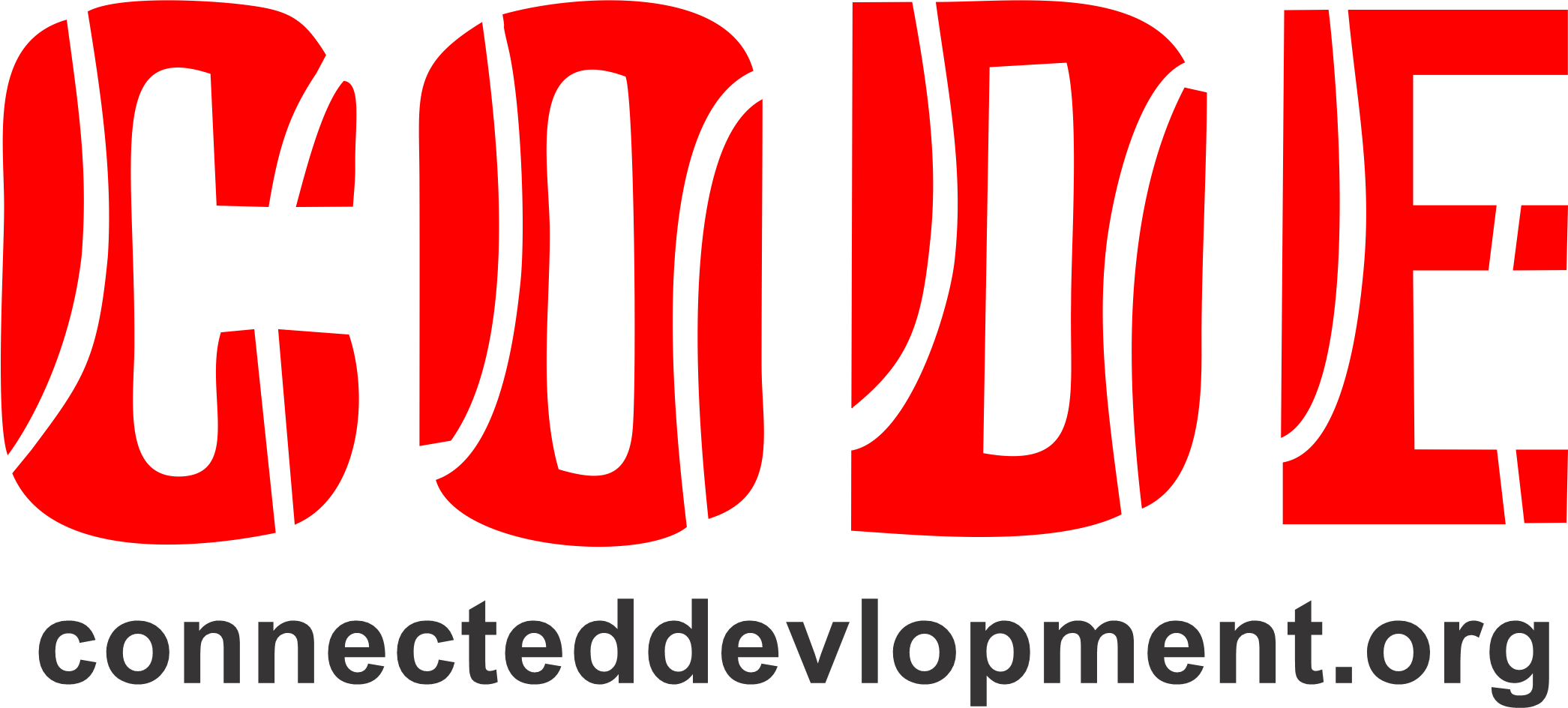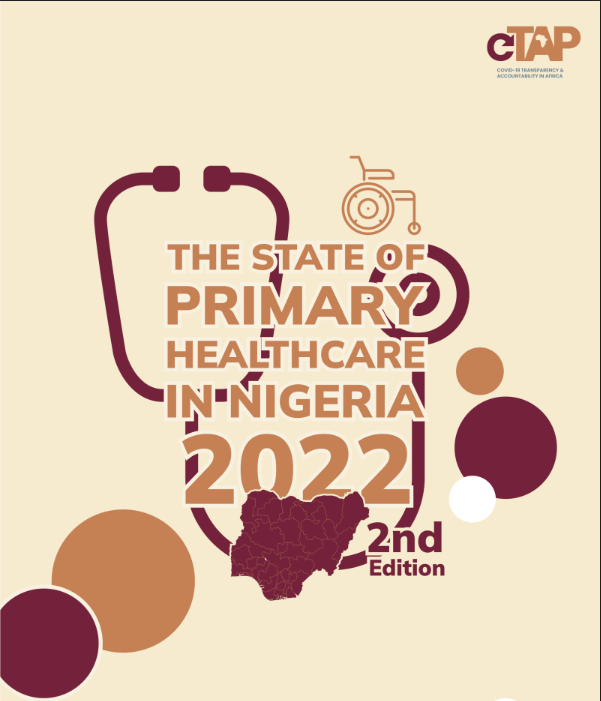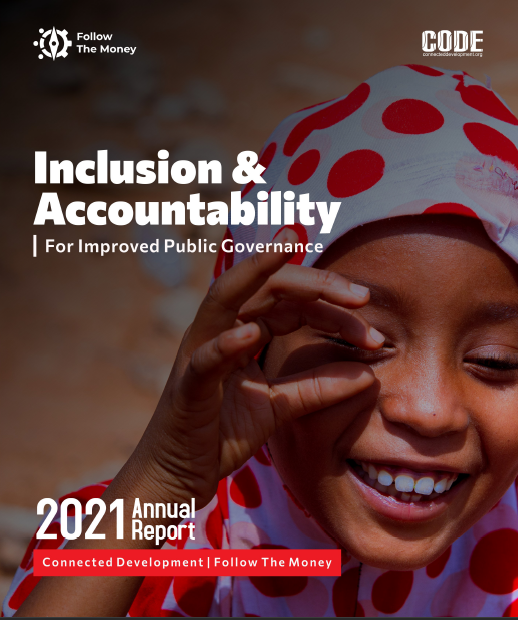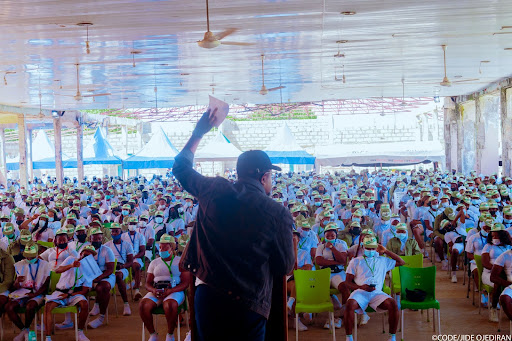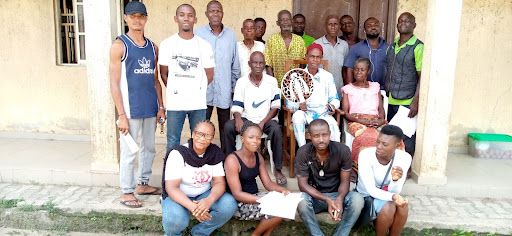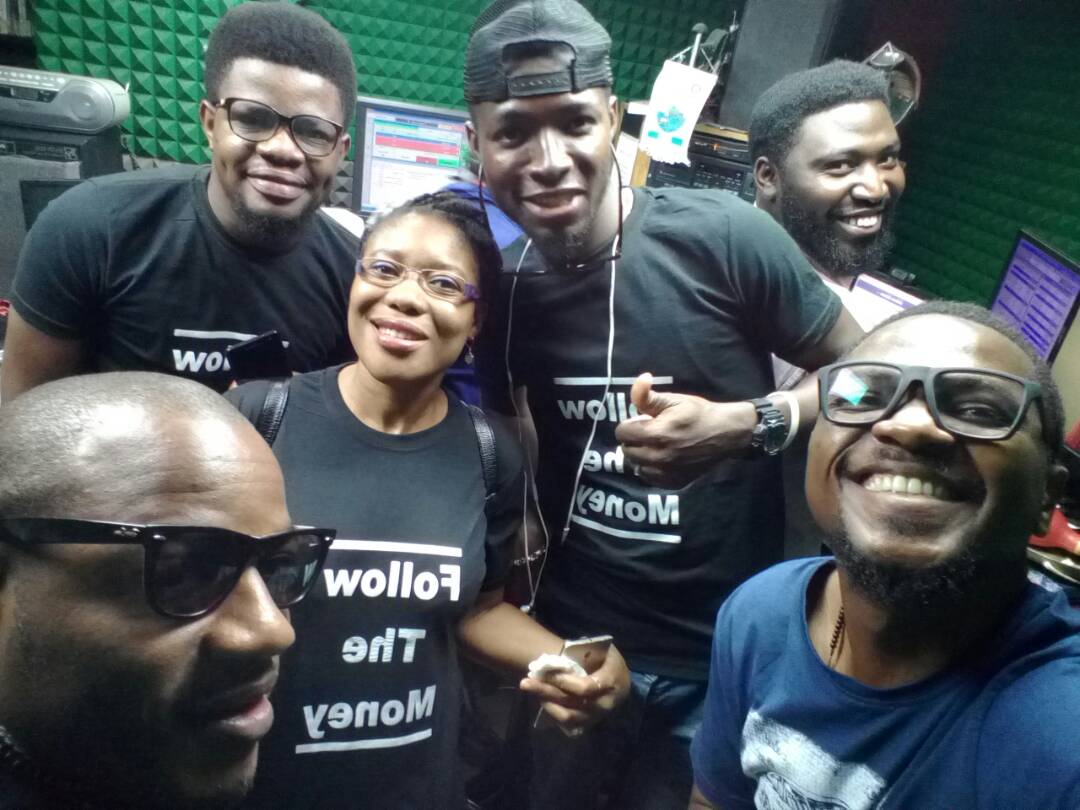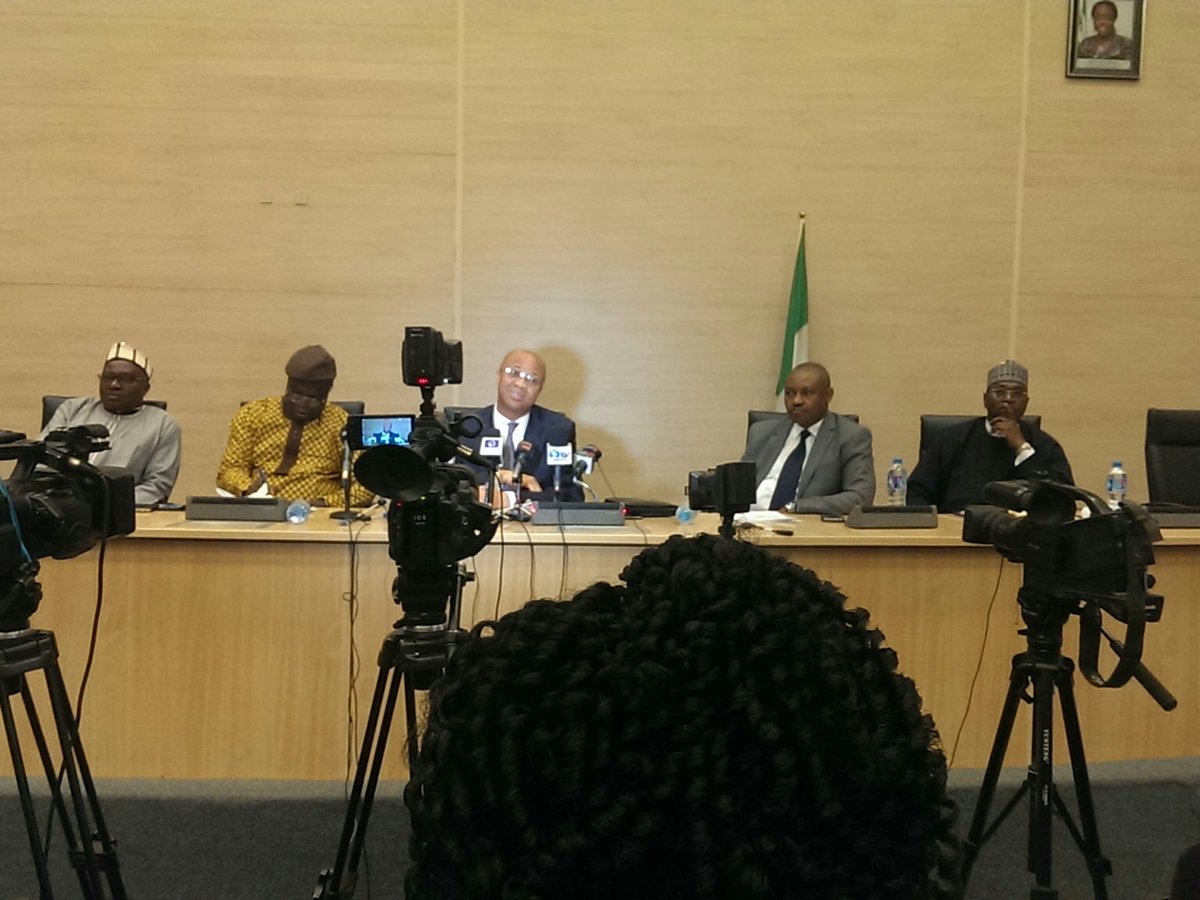- +234 09291 7545
- info@connecteddevelopment.org
Category: Health
Third Quarter 2021 CODE/FTM report
The third quarter of 2021 was in furtherance of CODEs strategic plan. On the journey towards taking hold of governance processes and seeking more accountable systems, we made advancement in education, health, energy, governance sectors through various projects championed by vibrant youths who believe in an inclusive Nigeria for all by creating feedback loops between the people and the government and strengthening systems and communities along the way.
Second Quarter 2021 Follow The Money Report
In the first half, We recorded significant results from hosting an audacious COVID Transparency and Accountability Conference to kicking off the tracking of N1.1Bn Kaduna Constituency Projects, to advocating better living standards for residents in Oil-producing states, and working with State Governments to demand an end to GBV. We began this second half of the year on the bedrock of enhancing citizens’ engagement, building partnerships and collaborating with institutions who share in our vision to accelerate timely intervention for marginalised groups.
First Quarter 2021 Follow The Money Report
We kick started the year ready to evolve and expand our work across more African countries, reaching more marginalized communities with the message of Follow The Money. To officially launch the programs and campaigns for the year, we engaged our HQ staff as it is the norm in a 3 days strategic and planning meeting in order to reinforce the organisational goals, build synergy across departments and map out deliverables and engagement strategies for our cohort of volunteers and champions.
CODE signs MOU with NPHCDA to strengthen health sector accountability
The National Primary Health Care Development Agency (NPHCDA) and Nigeria’s leading civil society organization, Connected Development (CODE) have signed a Memorandum of Understanding (MOU) to strengthen and foster health sector accountability in Nigeria.
The MOU is a vital step towards enabling CODE to further expands its tracking and evaluation of Primary Healthcare Centres (PHCs) across the country, to inform its advocacy in canvassing for improved primary healthcare infrastructure and service delivery.
How Radio is fostering Citizen Participation and Government Accountability
[ All 13 episodes of the Follow The Money Radio Program can be listened to at https://soundcloud.com/follow-the-money-129876762/sets/followthemoney-radio-editions ]
“Follow The Money, I have a health facility in Imesi Ile, in Osun State, which has been turned into a warehouse, can you please activate your campaign in this rural community because the facility should have catered for so many people.”
“I will like to inform you that the reconstruction of the primary school at Tongo in Gombe as commenced, we thank the Follow The Money people in our community and also you for mentioning it on the radio.”
Those were some comments from listeners of the 13 episode Follow The Money Radio program, aired on Wazobia FM 95.1 Abuja during the second quarter of 2017 (April to June 2017). In 2015, snap poll results released by NOIPolls Limited revealed that 62 percent of Nigerians surveyed get their daily information via Radio, as such we introduced Follow The Money Radio at a radio station that allows local language – Pidgin. The pidgin language is widely understood and spoken by Nigerians, as such we decided to partner with the popular Wazobia FM in Abuja, which has a reach covering millions of Nigerians. Just to note, that there are other citizen engagement radio program in Nigeria as well, such as the popular office of the citizen by Enough is Enough Nigeria Coalition and Budeshi by procurement monitor that airs every Friday morning on Nigeria Info FM Abuja
But how do you complement a movement like this on the radio? Last year, Connected Development experimented its advocacy strategies with the School of Data Radio, allowing it to garner 1,005 followers on Twitter, and three callers that turned into data evangelist. Even though, the SCODA Radio had bits of drawbacks because there were no directors and a permanent presenter. The drawbacks were useful lessons, for us to initiate the Follow The Money radio. We had to employ the knowledge of Uche Idu, a media for development expert to produce the program. We leveraged on our 2016 Community Media Champion – Big Mo to lead the presenters of the show. Every episode of the radio program was captured on Facebook Live as well, thus making it available to our community on Facebook
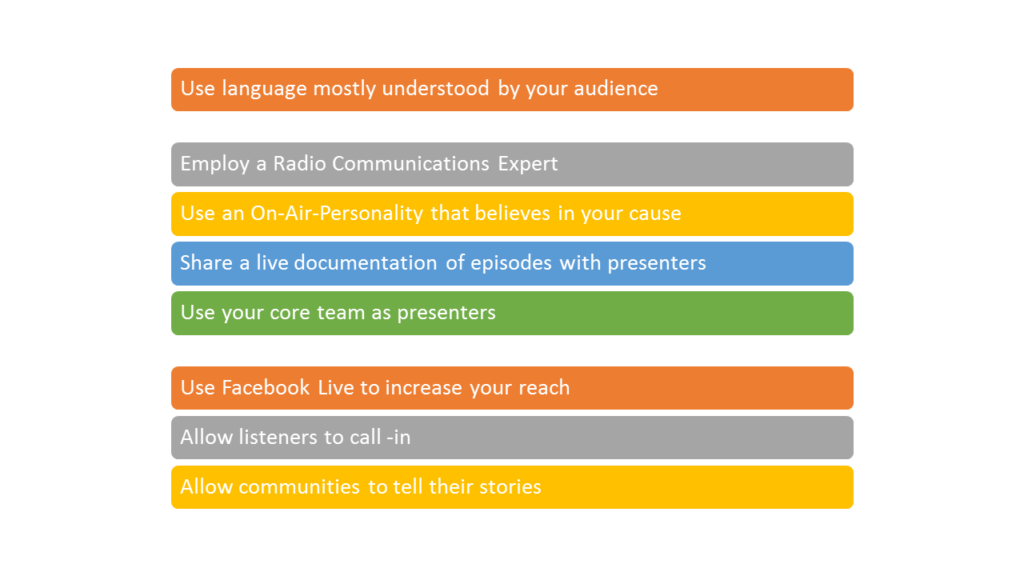
I remembered how much we discussed who the co-presenters will be. After three episodes, we concluded that it is important to use CODE’s staff working on Follow The Money, as they are in-tune with happenings within the community. With learnings from the School of Data radio, I had to start a documentation for the program which became a living document for Follow The Money Radio with presenters, the producers, the social media crew amplifying what happens during the radio program.
Many thanks to Cele Nwa Baby (Operations Manager at CODE) and Baba Bee (Programs Manager at CODE) who took out time to compliment Big Mo on making stories of communities engaging their sub-national government to air on radio, and making sure responses were gotten on such stories. In one of the episodes, the presenters instructed: “honourable Yaya Bauchi from Gombe, we are calling on you to commence the rehabilitation of the primary school at Tongo 2, we already know it’s a constituency project”. Two weeks later, the headmaster of the school joined the radio program to affirm that the rehabilitation of the school as actually commenced. Honourable Yaya Bauchi is the present house of representative member representing Tongo in the National Assembly, and it was confirmed that the renovation of the school was included in a constituency project proposed by him. Another intriguing story was that of the Primary school in Gengle, Adamawa state where hundreds of children learn under a dilapidated building. Three weeks after it aired on the radio program, the communities in Gengle joined the show to inform that the government visited their school, and they offered to start rehabilitation.

From Left – Baba Bee, Olusegun (Handling Facebook Live),Cele Nwa Baby, Oludotun, Uche Idu. From Back Left Olusegun, Bluetooth and Big Mo
So, what next for Follow The Money Radio? “You have all done well in bringing this to the radio; I think you should take this program to the state as well” advised one of our listeners during the last episode. As parts of messages gotten during the program, we have received emails from two other radio stations, who wanted to rebroadcast the show. Unfortunately, they are all in Abuja. Going forward, we are planning to initiate Follow The Money radio in the states, as such if you are a running a radio station in the state, or you are an OAP passionate about good governance, let’s get more voice amplified on your radio station, and feel free to contact us by joining our largest community on governance in Africa at http://ifollowthemoney.org or via info@connecteddevelopment.org. In the meantime, the Follow The Money Radio will be coming to you in the next quarter, join us at http://ifollowthemoney.org to get information on where it will be airing. Please stay tuned!
MEETING WITH DR. IBRAHIM KANA (SOMLPforR PROGRAM MANAGER) AND OTHER SOMLPforR TEAM MEMBERS
The saving one million lives Initiative was launched in October 2012, in response to the poor health outcomes in the country especially for mothers and children. Thus,the program is intended to improve the lives of mothers and children through a result based partnership with States ministries of health.
On the 16th of March, the team at CODE met with Dr. Ibrahim Kana the Program manager of Saving One Million Lives Program for Results to get an extensive elucidation of how the program is being run and what it entails.
Dr Ibrahim and his team excitedly aligning us on how ($500 million) credit that had been negotiated by Federal government with World Bank from which $1.5million was disbursed to states and FCT as grants, sought to deliver high impact, evidence based and cost effective health interventions based on 6 ‘pillars’, namely:-
– Maternal, newborn and child health;
– childhood essential medicines and increasing treatment of important childhood diseases;
– improving child nutrition;
– immunization
– malaria control; and
– the prevention of mother to child transmission (PMTCT) of HIV.
He stated that the states were receiving 82% of the money and the program unit is not involved in the spending of the money, also that the SOML Program involves reorienting the discussion of service delivery to results rather than just inputs, establishing a limited set of clear and measurable indicators by which to track success, strengthening data collection so that these indicators can be measured more frequently, bolstering accountability so that managers and health workers at all levels are engaged to achieve better results and fostering innovations that increase the focus on results and include greater openness to working with private sector.
He highlighted that The Program for Result is an approach to structuring of flow of resources to pay for results, outcomes and inputs and under it, states will be rewarded for their performance based on objective indicators using data from household and health facility survey as well as achievement of certain process indicators related to implementation of a performance management system. The program is placed in the Federal Ministry of Health and will be overseen by a Steering Committee chaired by the Honourable Minister of Health and comprising representatives from the state’s commissioner of health which is ultimately responsible for achieving the PforR indicators and ensuring stakeholders’ focus on objectively verified results.
The PforR will provide funds to the federal and state governments based on a set of five Disbursement Linked Indicators (DLIs) which are;
DLI 1.- Increasing Utilization of High Impact Reproductive, Child health and Nutrition Interventions; this will include states producing plans for achieving reductions in Maternal and Under 5 Child mortality, Improvements from states’ baseline on key health indicators such as penta 3 vaccination, insecticides treated nets used by children under 5, contraceptive prevalence rate, Vitamin A coverage, Skilled birth attendance and HIV counselling and testing during antenatal care. Lagging states are also encouraged to strengthen their MNCH weeks as part of an impact evaluation.
DLI 2. – Increasing Quality of High impact Reproductive and Child Health and Nutrition Interventions: This entails states improving the quality of care at primary health care facilities
DLI 3 – Improving Monitoring and Evaluation systems and Data Utilization; by conducting SMART surveys in all 36 states and widely disseminating the results.
DLI 4 – Increasing Utilization and Quality of Reproductive and Child Health and Nutrition Interventions Through Private Sector Innovation: A competitive innovation fund was established that supports innovations for techniques and technologies in health service delivery. This is been headed by the Private Sector Health Alliance of Nigeria.
DLI 5- Increasing Transparency in Management and Budgeting for PHC: States are required to transfer health staff to entity responsible for PHC while produce and publishing a consolidated budget execution report covering all income and expenditures for PHC.
Speaking on the disbursement arrangement, he stated that once state earnings have been determined and verified, the PMU will set in motion the disbursement process. As soon as the World Bank receives a withdrawal application, funds will be disbursed to a dedicated account of the Federal Government for transfer to the accounts states have in Central Bank within 30 days.
The meeting with the Program management unit was very insightful, as a lot of questions we earlier came with were clearly answered but that did not leave us without having a few “asks” and recommendation that we hope will enable us at FollowTheMoney to effectively monitor and track the I.5 million dollars allocated to states.
Recommendations from CODE
Civil Society Organizations be included as part of the Independent Verification Agents
the National Orientation Agency should be carried along in sensitizing the general public about the program.
Specific asks from CODE
we asked to obtain a copy of the State’s Implementation Plans.
Ijeoma Oforka is a Program Officer at Connected Development, with a background in Public Health. She is passionate about advocating for the plights and issues surrounding women and girls health and education. She tweets via @ijoforka
Addressing Citizenry Extensive Concerns on the 2017 Budget Proposal
On 23 February 2017, the Director-General (DG) of the Budget Office of the Federation choreographed a media briefing on several issues surrounding the 2017 Budget Proposal. The DG also used the briefing to make certain clarifications on public outcries over several budget items on the proposal. Most of these outcries were on many frivolous items (especially on electricity and utility bills of MDAs; several humongous expenses on the state house budget on utensils and feeding, electricity bills, travel expenses etc.); repetitions of budget items; budget cycle crisis; the budget preparation expenses; lack of details on some of the items; budget padding etc.
In attendance at the briefing were the media and Civil Society Organizations (CSO). In responding to some of these concerns, the DG took his time to counter some of the claims:
1). He stated that there was no sort of budget padding on the 2017 budget proposal.
2). That there were no frivolous items. That most of the extensive increments such as state house proposed expenditure on utensils and utility bills; electricity bills, security and cleaning services payments in MDAs etc. were either as a result of arrears of such bills/expenses or because funds were not later provided for them on the 2016 budget (meaning they were not implemented.)
3). He stated that there were no repetitions on the proposal, unless the repetitions being referred to were budget items on the 2016 one that re-reflected on the 2017 proposal, which was as a result of the fact that funds were not provided for such items on the former.
4). He reassured the audience of his liaison with the National Assembly to ensure that budget cycle would be from January – December of every year, which was clearly stated on the constitution, as against the culture of having a previous budget being implemented in another fiscal year.
5). He also explained that the details-deficit on some of the budget items were as a result of the perspective to keep the budget simple, for public consumption. That however that his agency would ensure further details on budget items when preparing subsequent budgets.
Representing Connected Development (CODE) at the event, I further engaged the DG and raised concerns over the NGN305/$ calculation on the budget proposal (while $1 is valued at NGN 520 at the contemporaneous market); if there are extensive plans for enhanced transparency and accountability in the 2017 budget implementation; our expectancy to lay hands on the 3rd and 4th quarters’ reports of 2016 budget implementation; his plans to ensure that revenue realization deficit would not frustrate the 2017 budget implementation drawing on the country’s experience with the 2016 one; and getting access to an extensive version of the budget that had further details on some of the line items. For the latter, I mentioned the ‘Talking Sanitation’, as well as ‘Afforestation’ and ‘Tree Planting’ budget items on the proposal, under the Ministry of Environment, which all lacked details such as where and how. Lack of such specific details has frustrated the works of CSOs that are into governmental capital expenditure tracking.
In addressing my concerns, the DG made commitments that were all in line with Nigeria’s commitments on the Open Government Partnership. He stated that the 3rd quarter 2016 budget implementation report would soon be in public domain while the 4th quarter’s would soon be out too. He further stated that there would be increased transparency, accountability and citizen engagement in the 2017 budget implementation. On this, he cited plans to have a digital platform for 24/7 citizen engagement on the budget. He also mentioned that there would be a breakdown on project basis subsequently when funds are released to MDAs. In addition, he promised a quarterly media briefing on the 2017 budget implementation. These were all good news and great outcomes for nonprofits that are into Open Governance advocacy. He mentioned categorically that the revenue realization plan on the proposal is quite realizable and that the FOREX regime crisis would not affect the budget implementation.
This media engagement is a step in the right direction as bringing all stakeholders involved and addressing public concerns on the budget proposal have boosted citizen participation in governance and also provided a platform for clarifications on several portions of the budget, as well as for stakeholders to make suggestions. It is hoped that the Director keeps to all the new commitments he made at the briefing and ensuring extensive open financial governance in the budget implementation. From our part, we are sending an FOI request for an extensive version of the budget, which he promised CODE would be provided with. And before I forget, he commented that he likes our name, ‘Follow The Money.’
Chambers Umezulike is a Program Officer at Connected Development and a Development Expert. He spends most of his time writing and choreographing researches on good and economic governance. He tweets via @Prof_Umezulike.
Engaging Legislators on #MakeNaijaStronger Campaign
Connected Development [CODE] in partnership with ONE Campaign and The League of Progressive Ambassadors of Nigeria (LEPAN) organized a one week outreach to engage legislators on the #MakeNaijaStronger campaign which is a national health campaign to draw attention to the urgent need for increased public investments to improve health and nutrition outcomes in Nigeria. The Campaign amplifies the calls of various Nigerian organizations that have called on government to priorities increased health investments to help strengthen health systems and save lives.
The aim of the outreach was to get the legislators to sign the petition which calls on the government needs to ensure full implementation of the National Health Act, including more resources and better spending to ensure all Nigerians, including the poorest are able to access health care.
The National Health Act was signed into law by the president on December 9, 2014 with the aim to establish a framework for the regulation, development and management of a National Health System, to set standards for rendering health services in the Federation and other matters concerned, it also provides that there would be improved funding of health care services at the grass root so that people don’t have to travel far to access medical services. This Act will also ensure that states participate in improving health centers through a counterpart fund that would enable them benefit from the consolidated funds.
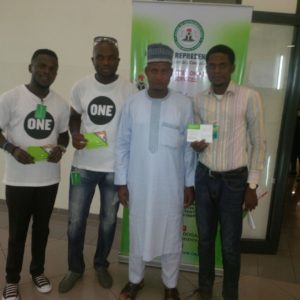
Getting the legislators to sign the petition was not an easy ride as most of them could not be found at their offices. Those that were around were apprehensive and bluntly refused to append their signature, while some will verbally support the cause and refuse to sign the petition. We also understood that it was a very difficult time for them as previously they just experienced a total blockade of the complex by an aggrieved group and therefore there was little acceptance given to advocacy groups at the moment. Notwithstanding a total of 84 petitions were signed by the legislators.
This shows that 34 distinguished senators and 50 Honourable members are also joining CODE, ONE Campaign, LEPAN and the Nigerian citizens to call on the Government to fully fund the National Health Acts and its provisions, Increase transparency in health programming and spending and also scale up investments in the 2017 budget for areas that can have the greatest health impact for Nigerian citizens in other to #MakeNaijaStronger
- 1
- 2
